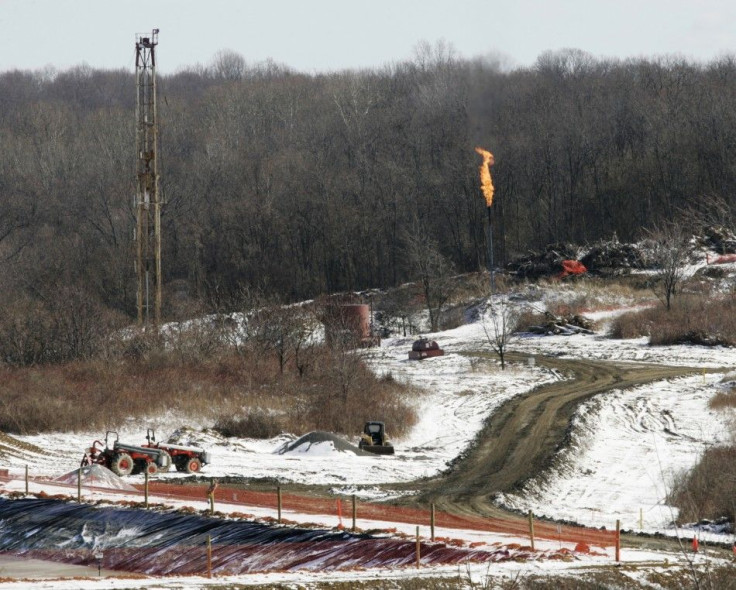Industry Group Releases Suggestions For Natural Gas Development In Marcellus Shale

The Marcellus Shale Coalition, a trade group of oil and gas companies, released Thursday operational suggestions it hopes will standardize how the oil and natural gas industry approaches future drilling operations. The suggestions come as the industry seeks to tap the vast resources of the Marcellus Shale, which stretches from Ohio to New York state, using means that include the controversial practice known as fracking.
Meant more as a reference than a series of binding agreements, the coalition's recommended practices touch on how companies could develop a lease and how they should go about restoring the landscape once a well is shut and decommissioned.
On the surface, the suggestions appear straightforward, and are the first in a series of releases expected in the next several months. The aim is to establish a list of best practices for the industry to help defuse tensions between property owners and the energy industry.
Among its numerous recommendations, the coalition says oil and natural gas companies should try reducing their impact on property and communities by drafting development plans with surface owners -- those who will be most affected by the presence of a natural gas or oil derrick on their land.
The plans ideally would help harmonize the needs of the industry with those of the surface owners and local communities. The recommendations suggest for instance that companies build access roads that, when decommissioned, would remain useful to residents.
The coalition also suggests oil and natural gas companies do more to mitigate soil erosion, and provide suggestions for how companies could plant trees in former drilling sites.
Drilling for natural gas is not a simple process, and when hydraulic fracturing or fracking is involved, a lot of equipment is required. Companies need access to road systems, will need to build gas transition lines, gas compressor stations, processing facilities and the drilling pad itself, the coalition said, all of which requires land.
This infrastructure is vital to obtain the economic and energy security benefits from this abundant natural resource, read the Coalition's report. However it is also desirable to producers and the public at large to minimize impacts from these activities; therefore, our members have committed to apply recommended practices in site development and restoration.
The recommendations come after months of research, and community outreach, said the coalition.
The Marcellus Shale rock formation holds as much as 84 trillion cubic feet of natural gas, and is the source of an energy boom in Pennsylvania, Ohio, and Virginia.
From site identification, to safety, communications, landowner engagement and eventual reclamation, this guidance document is the first of many that the coalition will release in the coming months - all of which are designed to increase awareness and share ideas and practices that work while continuing to raise the bar on responsible natural gas development across the region, said coalition president Kathryn Klaber.
© Copyright IBTimes 2024. All rights reserved.





















